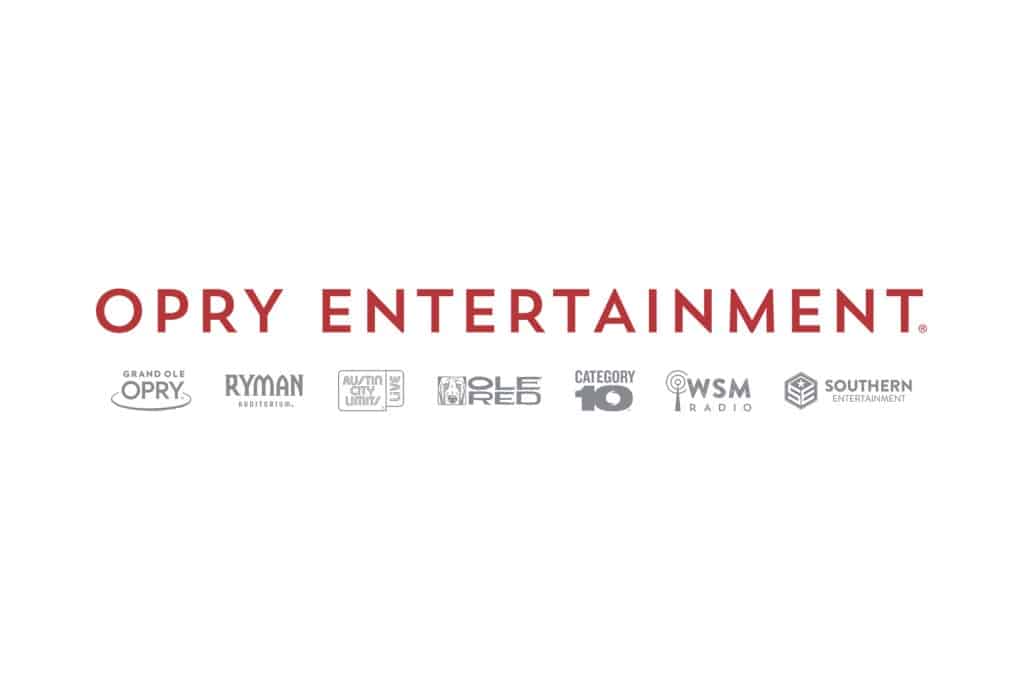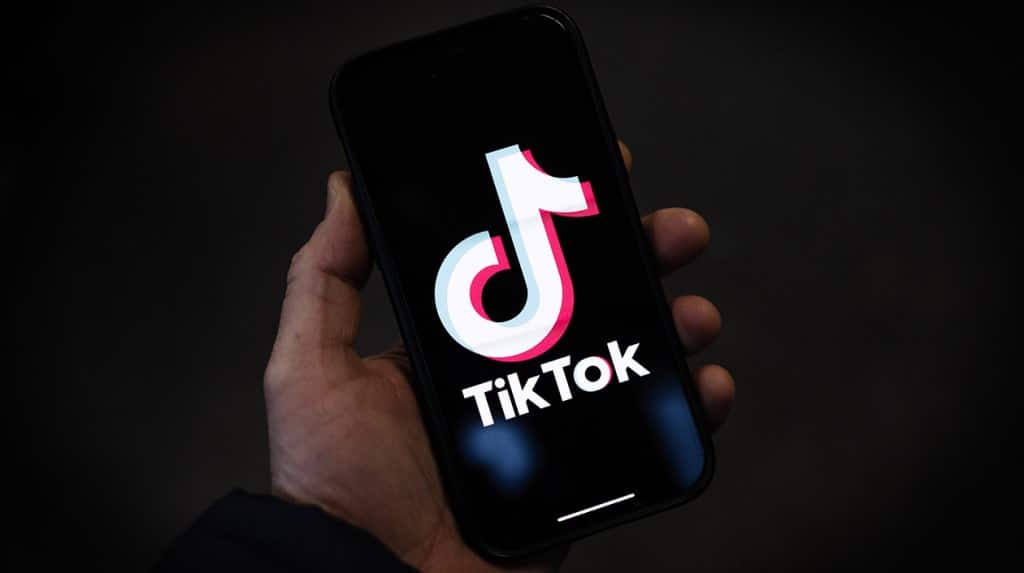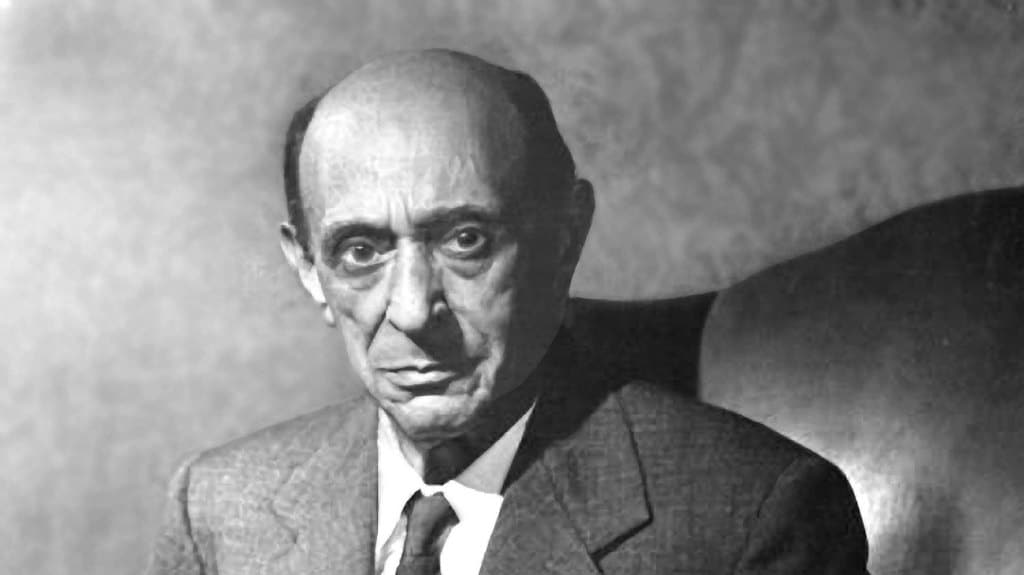Business
Page: 146

Attorneys for Sean “Diddy” Combs claim in new legal filings that key evidence disclosed by prosecutors — videos of the alleged “freak off” parties at the center of case — show only consensual sex and “fundamentally undermine” the charges against him.
In a motion filed Tuesday (Jan. 14), the star’s lawyers say they must be given more expanded access to the videos because they amount to “exculpatory evidence” — crucial material that must be handed over to a defendant if it can help prove their innocence.
Far from the “sensationalistic media reports,” Diddy’s attorneys write, the videos at issue “unambiguously show that the person alleged in the indictment to be Victim-I not only consented but thoroughly enjoyed herself.”
“There are no secret cameras, no orgies, no other celebrities involved, no underground tunnels, no minors, and not so much as a hint of coercion or violence,” lead defense attorney Marc Agnifilo writes. “Far from the government’s lurid descriptions, the videos show adults having consensual sex, plain and simple.”
The arguments came in a motion complaining that prosecutors have only given Combs’ lawyers limited chances to view the tapes, rather than handing over actual copies. Now that they’ve seen them, the star’s lawyers say they need full access so they can use the videos as central evidence in their defense: “Mr. Combs is entitled to put this evidence to use for trial.”
At times, Tuesday’s filing sharply criticized the government’s case, arguing that prosecuting Diddy for partaking in the “clearly consensual sex” captured on the tapes was “both sexist and puritanical” — a means of policing the behavior of consenting adults behind closed doors.
“The government’s theory perpetuates stereotypes of female victimhood and lack of agency,” Combs’ attorneys write. “The prosecution reflects a paternalistic view that the government is here to protect women, who cannot be trusted to make their own decisions about sex, and are not capable of consenting to sex that the prosecutors view as outside the norm.”
Combs was indicted in September, charged with running a sprawling criminal operation aimed at satisfying his need for “sexual gratification.” The case centers on the elaborate “freak off” parties mentioned in Tuesday’s filing, in which prosecutors say Combs and others would allegedly ply victims with drugs and then coerce them into having sex. He also stands accused of acts of violence and coercion aimed at keeping victims silent and compliant.
A trial is currently set to start on May 5. If convicted on all of the charges, Combs faces a potential life prison sentence.
This is The Legal Beat, a weekly newsletter about music law from Billboard Pro, offering you a one-stop cheat sheet of big new cases, important rulings and all the fun stuff in between.
This week: TikTok – and the music industry – wait for a Supreme Court ruling on the app’s fate; Megan Thee Stallion wins a new civil restraining order against Tory Lanez; Travis Scott and SZA face a copyright lawsuit over their collab hit; and much more.
THE BIG STORY: TikTok’s Future Hangs In The Balance
The U.S. Supreme Court could rule at any moment on the future of TikTok – a key cog in the modern music industry. And it doesn’t look good for TikTok.
Trending on Billboard
At arguments on Thursday, justices on both sides of the high court’s ideological divide seemed to signal that they plan uphold a law requiring the app’s Chinese-owned parent ByteDance to either sell TikTok to a U.S. company or face a total ban on January 19. TikTok and groups of users argued that the law violates the First Amendment’s protections for free speech, but the justices appeared more concerned about national security concerns cited by the government.
Justice Brett Kavanaugh said China could use internal TikTok data to “develop spies, to turn people, to blackmail people.” Justice Elena Kagan noted that the First Amendment doesn’t even apply to a foreign firm like ByteDance. Chief Justice John Roberts pointedly asked TikTok’s lawyer if the court was “supposed to ignore the fact that the ultimate parent is, in fact, subject to doing intelligence work for the Chinese government?”
Following the hearing, courtwatchers weren’t optimistic about TikTok’s chances: “I think it’s more likely than not that TikTok & TikTok users lose this case 9-0,” wrote Leah Litman, a constitutional law professor at the University of Michigan Law School, in a post on Bluesky.
Many legal battles have big stakes for the industry, but few are on the scale of the TikTok case. With more 170 million American users, the app has become a key part of the modern music ecosystem – a core promotional tool for labels and a jumping off point for many new artists, albeit one that has occasionally butted heads with rights owners and can sometimes prove difficult to harness into lasting success.
As Billboard‘s Elias Leight writes, record labels are already gearing up for the potential of life without TikTok — an outcome that executives tell him is hard to even imagine: “Where is new artist discovery happening in 2025 if this app completely disappears?” The live music business is also preparing to lose the platform, Billboard’s Dave Brooks writes, since festivals and other promoters have increasingly relied upon TikTok in recent years to reach ticket buyers.
The wild card in all of this, of course, is President-elect Donald Trump – who was very famously For It Before He Was Against It when it comes to the TikTok ban but has now said he wants to “negotiate a resolution” to save the platform.
Trump is set to take office on Jan 20, just hours after the ban is scheduled to go into effect. Stay tuned.
Other top stories this week…
“WON’T LET ME FORGET IT” – Megan Thee Stallion won a civil restraining order against Tory Lanez after tearfully testifying before a Los Angeles judge that she was scared he’ll “shoot me again” when released from prison and “maybe this time I won’t make it.” The order came more than two years after Lanez was convicted of shooting the superstar rapper in the foot during a drunken incident in the Hollywood Hills. Lanez is currently serving a 10-year prison sentence, but Megan warned the judge that he has continued to harass her from behind bars: “It just seems like I have to relive it every day. The person who shot me won’t let me forget it.”
COPYRIGHT CLASH – Travis Scott, SZA and Future were hit with a copyright lawsuit by Victory Boyd (a singer signed to Jay-Z‘s Roc Nation record label) over allegations that they stole key elements of their 2023 hit “Telekinesis” from her 2019 song “Like The Way It Sounds.” Boyd says she initially shared her song with none other than Kanye West, who then allegedly shared it with Scott.
UNMASKING ORDER – K-hip-hop star Jay Park asked a U.S. court to force Google to identify an anonymous YouTube user so he could sue the person in Korean court, citing allegedly defamatory internet videos linking him to drug traffickers and disparaging Korean-Americans. The case isn’t entirelys surprising: As K-pop has exploded in global popularity — and with it an intense online fan culture — superstar acts like BTS and BLACKPINK have repeatedly turned to Korea’s strict libel laws to target statements made on the internet. Last year, NewJeans filed a similar U.S. case seeking to reveal a YouTuber’s identity.
RELEASE DATE – YoungBoy Never Broke Again (a.k.a. NBA YoungBoy) will be released from prison in July, according to federal inmate records — far sooner than indicated by his formal two-year sentence handed down last month. The rapper (real name Kentrell Gaulden) received the sentence after taking a plea deal last year to resolve federal gun possession charges in Louisiana and Utah. The likely explanation: YoungBoy is being credited with time-served for jail stints while he awaited trial.
CASE CLOSED (FOR NOW) – An anonymous Jane Doe accusing Diplo of sharing “revenge porn” dropped her lawsuit against the DJ, just weeks after a federal judge ruled she would need to reveal her identity if she wanted to proceed with the case. The move to end the suit was filed “without prejudice,” meaning she could still refile her lawsuit at some point in the future.
CARDI v. TASHA CONTINUES – Years after Cardi B won a multi-million dollar defamation verdict against gossip blogger Tasha K, the superstar is still battling to get that money. In a court filing last month, Cardi accused Tasha of using bankruptcy as part of a “fraudulent scheme to shield debtor’s assets and income from creditors.” Tasha then fired back last week, arguing that the rapper is trying to “sabotage” her career and “silence” her.
As devastating wildfires continue to ravage Los Angeles County, a number of music businesses have stepped up to support relief efforts. Whether it’s multi-million dollar donations, offers to replace destroyed musical instruments and gear, or providing free studio time to affected musicians, it’s clear the industry is coming together to support both music professionals and the greater public who have suffered devastating losses.
Billboard has compiled a list of some of the music companies taking part in relief efforts around L.A. We will continue to update this list as more announcements are made.
If you’re a musician or music industry worker impacted by the fires, please see Billboard’s list of entertainment non-profits offering financial and other assistance. You can also check out a list of ways to help here.
Amazon Music
Amazon’s entertainment division, which includes Amazon Music, Prime Video and Amazon MGM Studios, along with Ring and Whole Foods, has committed $10 million to L.A. wildfire relief efforts. According to a company blog post, the money “will go directly to national and local disaster and response organizations.” This includes the American Red Cross of Southern California, FireAid, MusiCares, World Central Kitchen, the Los Angeles Fire Department Foundation and more.
Sony Group Corporation
Sony has pledged $5 million toward supporting relief efforts related to the Los Angeles-area fires. The sum will be allocated to organizations supporting first responders, community relief and rebuilding efforts, as well as employee assistance programs.
Sony Music Group also said on Tuesday (Jan. 14) tht it would redirect funds allocated to its now-canceled Grammy Week party to local relief efforts.
Warner Music Group/Blavatnik Family Foundation Social Justice Fund
On Sunday (Jan. 12), the Warner Music Group’s social justice fund announced a pledge of $1 million to support fire relief and rebuilding efforts in Los Angeles. The funds will be directed to organizations assisting the Los Angeles community, local first responders and individuals in the music industry affected by the disaster. Recipients of the pledge include the California Community Foundation, the Los Angeles Fire Department Foundation, Project HOPE and MusiCares, among others, according to a press release.
WMG added on Monday (Jan. 13) that it would not be holding its annual Grammy party and will instead redirect funds to efforts to combat the wildfires and help those affected.
Universal Music Group
The label giant announced that it would cancel all of the company’s Grammy-related events, including its artist showcase and after-Grammy party, and instead “redirect the resources that would have been used for those events to assist those affected by the wildfires.”
Good Boy Records
Good Boy Records, a label founded by producer Elie Rizk, is opening its doors for free to any musician who has lost their recording space in the L.A. fires. Click here for a public calendar and to book time at the company’s studio in Studio City.
Homemade Projects
Homemade Projects, a record label, influencer management firm, merchandiser and digital marketing agency, announced via Instagram after the fires took hold that anyone in the L.A. area in need of clothing could contact the company and be provided with new tees, hoodies, sweats and hats from its warehouse.
Guitar Center
The Guitar Center Music Foundation is offering support to L.A.-area musicians and music programs affected by the devastating fires, as announced on its website. Eligible individuals can apply for a one-time grant to help replace instruments lost or damaged in the fires. Applications are open through Feb. 28. To apply, visit the link here.
Discogs
The record-collecting marketplace announced it will donate its sales revenue on Friday (Jan. 17) directly to MusiCares, The Recording Academy’s non-profit arm, which is offering financial assistance to affected music industry workers.
The Pacific Palisades fire destroyed the building housing Belmont Music Publishers, the exclusive publisher of physical works by early 20th century composer Arnold Schoenberg. The fire consumed Belmont’s entire inventory of sales and rental materials, including manuscripts, scores and other printed works, the publisher said.
“For a company that focused exclusively on the works of Schoenberg, this loss represents not just a physical destruction of property but a profound cultural blow,” said a press release written by Schoenberg’s son, Larry, who also lost his home in the fires, according to his nephew E. Randol Schoenberg.
Since the 1970s, Belmont has worked to preserve Schoenberg’s legacy, providing meticulously edited editions of his wide range of transformative compositions, including Verklärte Nacht and Pierrot Lunaire, to musicians and scholars.
Trending on Billboard
Despite the loss of its physical inventory, Belmont Music said it already has plans to rebuild the collection digitally, ensuring the music of Schoenberg — the author of the twelve-tone technique of composition — remains accessible to scholars, performers, and music enthusiasts.
“While we have lost our full inventory of sales and rental materials, we are determined to continue our mission of bringing Schoenberg’s music to the world,” the publisher said. “We hope to rebuild our catalog in a new, digital format that will ensure Schoenberg’s music remains accessible for future generations.”
The Belmont team added, “We are committed to rebuilding and adapting to the changing times. The community’s outpouring of support has been truly heartening, and we know that, with your help, we can ensure that Schoenberg’s legacy lives on in a way that is as dynamic and enduring as his music.”
Born in Vienna in 1874, the self-taught Schoenberg initially drew inspiration from German Romantic composers like Brahms but is most renowned for developing the twelve-tone technique, or serialism, which dispatched traditional tonality and treated all 12 notes of the chromatic scale equally.
As a teacher, Schoenberg mentored influential composers such as Alban Berg and Anton Webern, further cementing his legacy. Fleeing the Nazi regime in 1933, he emigrated to the United States, where he continued composing and teaching in Los Angeles until his death in 1951.
Several wildfires have broken out in Southern California since the beginning of the year, with the largest being in Pacific Palisades along the coast. The major fires have scorched more than 63 square miles, destroyed thousands of homes and killed at least 24 people. Here is a list of organizations providing relief for those impacted by the devastation, from families to first responders.

Opry Entertainment Group (OEG) has acquired a majority interest in the North Carolina-based live events, hospitality and production company Southern Entertainment, whose portfolio of owned or promoted live music events includes the country music festivals Carolina Country Music Fest (Myrtle Beach, S.C.), Barefoot Country Music Fest (Wildwood, N.J.), Lovin Life Music Fest (Charlotte, N.C.), Greenville Country Music Fest (Greenville, S.C.) and the upcoming Field & Stream Outdoor Music Fest, which will launch this year in Winnsboro, S.C.
Founded by Bob Durkin and Rob Pedlow in 2015, Southern Entertainment has produced more than 200 events in the United States.
Trending on Billboard
“We’ve always looked at the festival business as a significant opportunity for us given the sort of shared focus on live events and venues that we do,” Patrick Moore, CEO of Opry Entertainment Group, tells Billboard. “Rob and Bob are 10 years into this business and they’ve created distinctive experiences for fans and for artists in really exciting destination markets.”
Says Durkin, “[OEG] had similar synergies when it came to growth, when it came to customer service, hospitality, the things that are what we think drive the business.”
For OEG, a subsidiary of Ryman Hospitality Properties, the new investment marks an additional expansion of its footprint in the live music space. OEG’s portfolio includes not only iconic country music mainstay the Grand Ole Opry (the Opry celebrates its milestone 100-year anniversary in 2025) and the Ryman Auditorium, but also WSM Radio and newer additions including the Blake Shelton-inspired Ole Red brand and the Luke Combs-inspired venue, bar and restaurant Category 10. In 2022, Ryman Hospitality Properties completed a deal that includes iconic Austin, Tex., venue ACL Live at Moody Theater. OEG is also a minority, non-controlling investor in the country lifestyle brand Whiskey Riff.
Moore declined to provide the specific percentage of OEG’s majority interest in Southern Entertainment, but notes that the combination “enables both businesses to tap into markets and demographics and communities that we can’t do individually.”
One of the biggest priorities for Southern Entertainment this year is the inaugural Field & Stream Music Fest, which is slated for Oct. 3-5 with headliners including Eric Church and Miranda Lambert; the festival is co-produced by Field & Stream alongside key investors Church, Morgan Wallen and Southern Entertainment.
“Field & Stream is something we are very excited about because it gives a unique feel for a music festival,” says Durkin. “You celebrate music and community with your fellow people and this one’s going to be in the middle of the woods and we have to take advantage of everything outdoors. There’ll be fishing aspects to it, hiking, mountain biking, so it’s really unique. What’s exciting, too, is that it is driven by artists. Eric Church, he’s from [North] Carolina. And the Field & Stream Magazine and the brand is iconic. So I think we can only help each other.”
Crucially, the investment will align the two companies’ shared focus on artist development and spotlighting emerging artists. “We have the same kind of general vision strategy and approach, and that goes for emerging artists and artist development,” says Moore. Following the deal, Southern Entertainment will integrate OEG’s artist development programs into its flagship country music festivals, where many Opry members and Opry NextStage artists have performed in recent years. The Opry’s NextStage Class of 2024 features artists 49 Winchester, Anne Wilson, Charles Wesley Godwin, Chase Matthew, Ella Langley, Wyatt Flores, Flatland Cavalry, Josh Ross and Madeline Edwards. Flores, Flatland Cavalry and Ross are among the current Opry NextStage artists who have played at Southern Entertainment festivals.
Amazon is committing $10 million to L.A. wildlife relief efforts, the company announced on Monday (Jan. 13). The donation comes from Amazon’s entertainment division (Amazon Music, Prime Video and Amazon MGM Studios), along with Ring and Whole Foods Market.
According to a blog post on the Amazon website, the money “will go directly to national and local disaster and response organizations including the American Red Cross of Southern California, FireAid, MusiCares Fire Relief Effort, World Central Kitchen, Los Angeles Fire Department Foundation, Habitat for Los Angeles Wildfire Fund, and Los Angeles Chamber of Commerce Small Business Relief/Recovery Fund, among others, as well as in-kind advertising opportunities on Prime Video for nonprofits supporting LA fire relief efforts.”
Amazon has already donated more than 145,000 essential items to 17 local organizations working on the wildfire response, including fire stations, community fire brigades, the American Red Cross, Salvation Army, Los Angeles Unified School District (LAUSD), Dream Center and multiple YMCA chapters. This includes 30,000 items to the Los Angeles County Salvation Army, 5,000 shelter items, more than 300 wildfire response items, gift cards to LAUSD to support teachers who lost their classrooms in the fires and 1,000 items to support fire stations, among many others.
The company says it’s also “deploying” its AWS cloud technology, including drone support, “to help emergency responders better understand and react to the evolving wildfire situation.” Additionally, it says it’s “curating opportunities” for its Southern California employees to volunteer with organizations including the LA Regional Food Bank and LAUSD.
Amazon’s announcement follows similar commitments made by companies including Sony Group Corporation, which on Monday said it would donate $5 million to wildfire relief efforts, as well as the Warner Music Group/Blavatnik Family Foundation Social Justice Fund, which pledged $1 million.
Sony Group Corporation has pledged $5 million to support relief efforts related to the Los Angeles-area wildfires. The sum will be allocated to organizations supporting first responders, community relief and rebuilding efforts, as well as employee assistance programs. “Los Angeles has been the home of our entertainment business for more than 35 years. Through our […]
Professional basketball player and “Tweaker” rapper LiAngelo Ball has signed a label deal with Def Jam and Universal Music Group (UMG), according to ESPN reporter Shams Charania. On Monday (Jan. 13), Charania, whose main beat is NBA news, tweeted that the recording deal for Ball, who performs under the name G3, was confirmed by “a […]
Bay Area punk rockers Green Day will join pop icon Justin Timberlake and folk singer/songwriter Noah Kahan to headline this year’s BottleRock festival in Napa, California, May 23-25, topping off a stacked lineup that includes something for nearly all musical tastes.
Explore
See latest videos, charts and news
See latest videos, charts and news
Since launching in 2013 and later being purchased by its current ownership group Latitude 38 Entertainment in 2014 (and later selling a majority stake to Live Nation in 2017), BottleRock has become a booking bellwether for the festival business with a lineup that would often provide a preview of the year ahead. Scheduled for Memorial Day weekend each year, BottleRock’s early summer date (late May) places it early on the festival season calendar, with many of the bands announced for one of its half-dozen stages typically booked for other major festivals later that summer.
Green Day, for example, is also booked to play Coachella this year and will headline 10 rock festivals in Europe and the U.K. over the summer, while Justin Timberlake is scheduled to play Lollapalooza festivals in Argentina, Chile, Brazil and Paris. Other acts appearing at this year’s BottleRock festival include “Beautiful Things” singer/songwriter Benson Boone, experimental Texas outfit Khruangbin, alt rock veterans Cage the Elephant and hip-hop legend Ice Cube, who dropped his 11th studio album Man Down in November, garnering 8 million views from the album’s lead single “It’s My Ego” on YouTube.
Trending on Billboard
Also performing at this year’s BottleRock festival is legendary Bay Area rapper E-40 (a member of hip-hop supergroup Mount Westmore along with Ice Cube), Long Beach reggae and punk legends Sublime (now led by Jakob Nowell), EDM superstar Kaskade, Cali-roots reggae outfit Rebelution, surfer-soul duo G. Love & Donavon Frankenreiter, Mexican singer/songwriter Carín León, jam band Goose, NYC electro-duo SOFI TUKKER, rap icons Public Enemy, Icelandic tour-de-force KALEO, Americana couple The War and Treaty, Texas troubadour Bob Schneider, Hollywood actress Kate Hudson who released her cover of “Voices Carry” last Spring, Beastie Boys turn-tablist Mix Master Mike, Doors founding guitarist Robby Krieger, the Linda Perry led 1990s alternative pioneers 4 Non Blondes and many, many more.
Known for its high-end food and wine pairings and embrace of the culinary world, this year’s BottleRock festival will once include the Williams Sonoma Culinary Stage, featuring a number of world renowned chefs, celebrities, performers and artists. Organizers also announced that it will be supporting California wildfire relief by matching every dollar donated by fans for the first $50,000 to support FireAid, a benefit concert dedicated to aiding those affected by the devastating wildfires.
Tickets for BottleRock go on sale Tuesday (Jan 14) at 10 a.m. PT. Three-day general admission tickets, including all fees, begin at $456 per person, and a special layaway plan is available for fans who want to pay as they go, starting with a $100 deposit. Learn more at BottleRockNapaValley.com.
Spotify’s less expensive subscription plans that exclude audiobook listening have been adopted by about 14% of its U.S. subscribers, according to a new Morgan Stanley survey.
In June, Spotify allowed existing subscribers to opt into “basic” plans without free audiobook listening in exchange for a slightly lower price. The basic plans arose from Spotify’s decision to bundle 15 hours per month of audiobook streaming with the standard premium subscription plans. Around the same time, the company increased the monthly premium subscription fee in the U.S. to $11.99 for individual plans and $19.99 for family plans that allow up to six people per account. The basic tiers provide access to music and podcasts while allowing subscribers to opt out of the audiobook offering.
So far, not many Spotify subscribers are opting for the music- and podcast-only tier. Morgan Stanley’s 11th annual Audio Entertainment Survey found that in 2024, 17% of U.S. individual premium subscribers opted into the less expensive basic plan, while 10% of family plan subscribers chose the less expensive basic tier. While the premium family plan’s percentage of all subscribers dropped only slightly to 25% from 26%, the premium individual plan’s share of subscribers fell to 48% in 2024 from 61% in 2023.
Trending on Billboard
The basic tiers’ light adoption rates help shed some light on the financial impact of Spotify’s decision to pay a lower mechanical royalty allowed for bundled digital services. In May, Billboard estimated that Spotify would pay $150 million less to songwriters, publishers and PROs in 2024 than they would have if Spotify had not bundled music and podcasts with audiobooks in the premium plans. (That estimate was calculated before Spotify raised premium rates again in June and gave subscribers the option to pay a lower rate for a plan that excludes audiobooks.) Less than a fifth of subscribers have opted for the basic plan, meaning the lower royalty rate of the music-audiobook bundle still applies to the vast majority of subscriptions.
The cost of the premium tier appears to have had a slight impact on consumer sentiment, however. The introduction of the basic plan and the second price increase in as many years coincided with a decline in Spotify’s user satisfaction. The survey found that the percentage of Spotify users who are “very satisfied” with the service slipped to 57% in 2024 from 61% in 2023, while “somewhat satisfied” users increased to 29% from 26%. Among streaming services, YouTube Premium was No. 1 in user satisfaction with 87% of respondents either “very satisfied” or “somewhat satisfied” with the premium video platform. Spotify, last year’s No. 1, was No. 2, followed by SiriusXM at No. 3, YouTube Music at No. 4 and YouTube at No. 5. Apple Music had the biggest decline, dropping from No. 2 in 2023 to No. 7 in 2024. Tidal ranked last in user satisfaction with 80% of users either “satisfied” or “somewhat satisfied” with the service.
Spotify fared well among young consumers. Overall, the platform accounted for 11% of listening time, third behind AM/FM radio’s 25% and SiriusXM’s 12%. But amongst the 18-29 age group, Spotify dominated with 19% of listening time, well ahead of YouTube and AM/FM radio’s 13% shares a piece and SiriusXM and Apple Music’s 9% shares a piece.
Spotify ranked behind only AM/FM radio in terms of U.S. active users. The survey puts U.S. AM/FM listenership at 316 million, about triple Spotify’s 106 million (including both subscribers and free users). Pandora ranked No. 3 with 44 million active users, ahead of Apple Music’s 41 million and SiriusXM’s 38 million. Amazon Music was estimated to have 13 million active users.

 State Champ Radio
State Champ Radio 








